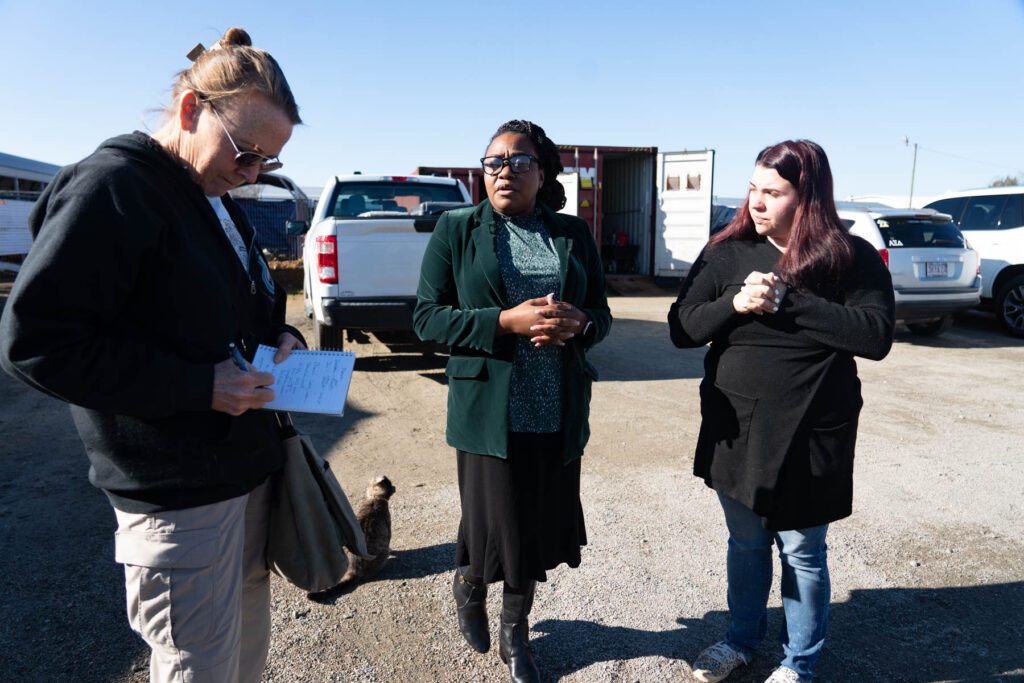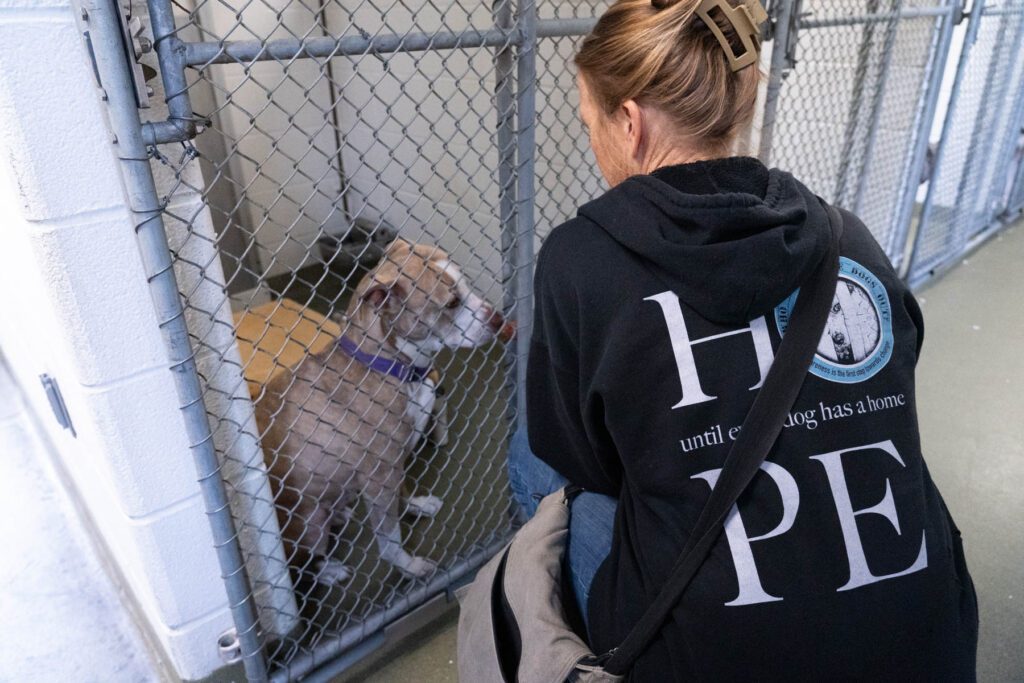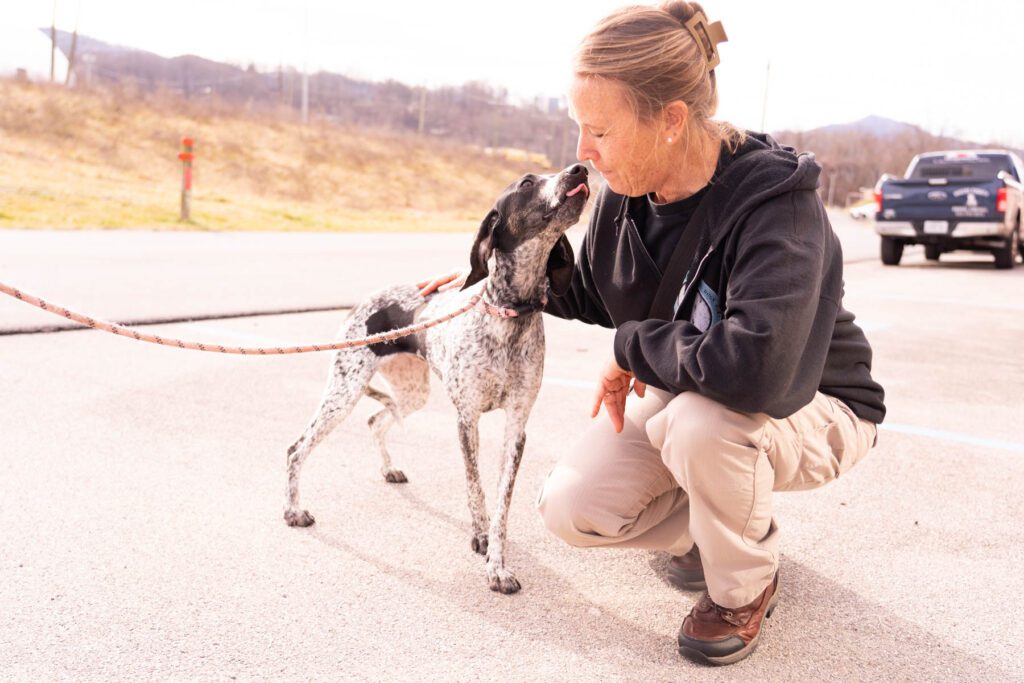It’s time for another shelter tour! This time we’re headed to five states with ten, possibly eleven stops, so it’ll be a lot of driving and a lot of gathering stories, meeting heroes, and of course, hanging out with adoptable dogs.
Our mission is to raise awareness and resources for homeless dogs and the heroes who fight for them. The stories are where this starts. If people don’t know something is happening, they can’t help, even more, they don’t know there is a need.
I’ve been mediating on a powerful phrase these days and it’s motivating me to move forward in lots of ways. Not just because life is short and the daily reminders are around us everyday in a sudden bridge collapse or cancer diagnosis or parvo rampaging through a kennel. Because here’s the thing—Nothing changes if nothing changes.

It’s a mantra I repeat it to myself as I walk countless foster dogs and clean up puppy poop. It’s written on a post-it note hanging above my laptop as a reminder while setting up this tour. And as I work on a book about the shelter situation from the perspective of all these tours, I know in my soul—Nothing changes if nothing changes.
We have to start doing things differently. We have to try new approaches when it comes to adoption, intake, animal care, and staff support. We have to engage our communities in new ways and help them be a part of the solution instead of the source of the problem.

We cannot keep doing the same things we’ve been doing that, admittedly, have brought us so far. The no-kill movement has been an incredible force for good for over three decades. But progress has not just stalled, it is sliding backward, and if we don’t work together to find new ways to build on that hard work, it will continue in that direction. Nothing changes if nothing changes.
We cannot rescue or spay/neuter or transport or warehouse our way out of this problem. And we cannot walk away or accept that we’re doing all we can.
I don’t have the answers, but that won’t stop me from continuing to search for them. That’s why we travel to the shelters to document what is happening, but also to look for solutions and to offer hope.

I still believe this situation is fixable, but I can’t do it and shelter directors can’t do it and ACOs can’t do it and a handful of volunteers can’t do it. It will take communities coming together to solve this crisis—they are the key to the solution, not the source of the problem.
I’m excited to visit ten shelters and rescues that are all new to me (plus stopping by one of my favorite shelters to pick up a foster or two on the way home). Ten more stories, ten more possibilities. We’ll bring them supplies and solutions and our absolute belief in what they are doing. We’ll follow up with ongoing support and hopefully, give out a few instagrants while we’re at it.
If you’d like to help us, consider shopping our Amazon wishlist, full of our favorite resources to bring to the shelters or donate directly to our shelter tour fund.
The best way you can help us, though, is to follow along on our social media and share the stories of the people and animals and communities we meet along the tour. In between stops, Nancy and I will be chatting live on Instagram (and occasionally Facebook) about what we’re seeing/learning/thinking as we have the great privilege of meeting a whole new set of heroes.
Tour Schedule (subject to change as we still have a couple moving pieces):
Mon April 15 Laurens County Sheriff’s Animal Shelter, Laurens, SC
Tues April 16 Eufaula Animal Shelter, Eufaula, AL
Wed April 17 Montgomery Humane Society, Montgomery, AL
Thurs April 18 Monroe County Animal Shelter, Monroeville, AL
Fri April 19 Grenada Animal Shelter, Grenada, MS
Sat April 20 Union County Animal Protection Society, El Dorado, AR
Sun April 21 Columbia County Animal Protection Society, Columbia, Magnolia, AR
Mon April 22 A&B Animal Rescue of SW Arkansas, Ashdown, AR
Tues April 23 Meals on Wheels for Helena-West Helena Dogs, Helena, AR
Wed April 23 Meade County Animal Shelter, Brandenburg, KY
Thurs April 25 Huntington Cabell Wayne Animal Shelter, Huntington, WV

Until each one has a home,
Cara
If you want to learn more, be sure to subscribe to this blog. And help us spread the word by sharing this post with others. Visit our website to learn more.
You can also help raise awareness by following/commenting/sharing us on Facebook, Instagram, YouTube, Tik Tok, and the Who Will Let the Dogs Out podcast.
To see our Emmy-nominated, award-winning short documentary, Amber’s Halfway Home, click here. If you’d like to see it on the big screen (along with other short dog films), check out the tour schedule of The Dog Film Festival, currently in art movie houses all over the country.

Learn more about what is happening in our southern shelters and rescues in the book, One Hundred Dogs & Counting: One Woman, Ten Thousand Miles, and a Journey Into the Heart of Shelters and Rescues (Pegasus Books, 2020). It’s the story of a challenging foster dog who inspired me to travel south to find out where all the dogs were coming from. It tells the story of how Who Will Let the Dogs Out began. Find it anywhere books are sold. A portion of the proceeds of every book sold go to help unwanted animals in the south.
For more information on any of our projects, to talk about rescue in your neck of the woods, or become a WWLDO volunteer, please email whowillletthedogsout@gmail.com or carasueachterberg@gmail.com.
And for links to everything WWLDO check out our Linktree.



Naomi Johnson
Cara, Best wishes for a safe and successful Shelter Tour.
I totally agree that “Nothing changes if nothing changes.” I’ve been doing dog rescue for about 60 years, both in rural NY and NC. When I was young, I worked for a vet in NY who was also dog warden. We euthanized many stray dogs and cats back then because people were not required to license their dogs. Fast forward to the 2010 when I was working with a rescue in NC. A young woman from the town in NY in which I lived started importing dogs from the South for people wanting to adopt dogs (and cats). Thanks to licensing laws there are virtually no stray or unwanted dogs available in most Northeaster states. Requiring people to license their dogs has ended the unwanted pet situation in the Northeast, and it could do the same in the South. Dogs that are spayed or neuter would have a minimal fee, and those that are not would be $100 or more (with special licenses for breeding kennels that are inspected regularly).
Nothing has changed in the 50 years I have been doing rescue in the South except for maybe a few better shelters and, in some cases, more knowledgeable and caring staff. The major changes have to happen before the dogs reach the shelters. The owners have to be made to be more responsible and caring about their pets. We are seeing more of this as people are becoming more educated about their pets, but those who don’t care have to be forced to take responsibility. And this can only happen with licensing legislature. No, nothing changes if nothing changes.
Cara Achterberg
Dog licensing is such a no-brainer. I don’t understand why all states don’t require it. It’s a huge influx of funds that benefit dog-people with a minimal fee paid by dog-people. It helps the states track their canine population creating important data should we have some kind of outbreak or emergency. And by charging significantly more to people whose pets are not spayed/neutered it provides another incentive for people to do it. Such a win-win-win for minimal costs. Thanks for the good work you!
Shirley Reid
While in Eufaula would like you to try to stop by the southern souls animal League thrift shop it is completely run by volunteers and supports our local volunteer shelter. Many shelters in the south have thrift shops associated with them for support..
Cara Achterberg
If we have time, we will definitely stop by – it’s a great example to share. Plus, who knows what we’ll have realized we forgot by then! (smile)
Shelly Crawford
I’m so excited to learn about your wonderful organization and that you will be visiting our local county animal shelter, the Lanier County Animal Shelter! Jessica Ganas is an amazing lady that puts 110% into our shelter as well as her daughter Cassidy. They truly love all the fur babies with their whole heart and are so dedicated to helping each and every one of them. They deserve all the help they can get. Thank you so much for including our shelter in your tour and I wish you safe travels!
Cara Achterberg
It was a pleasure to visit Jessica and see all that’s she doing at your little shelter. I hope she is able to find more volunteers to help so that she doesn’t have to work 7 days. I also hope that the city ‘shelter’ system finds an equally wonderful person and creates something similar like the county.